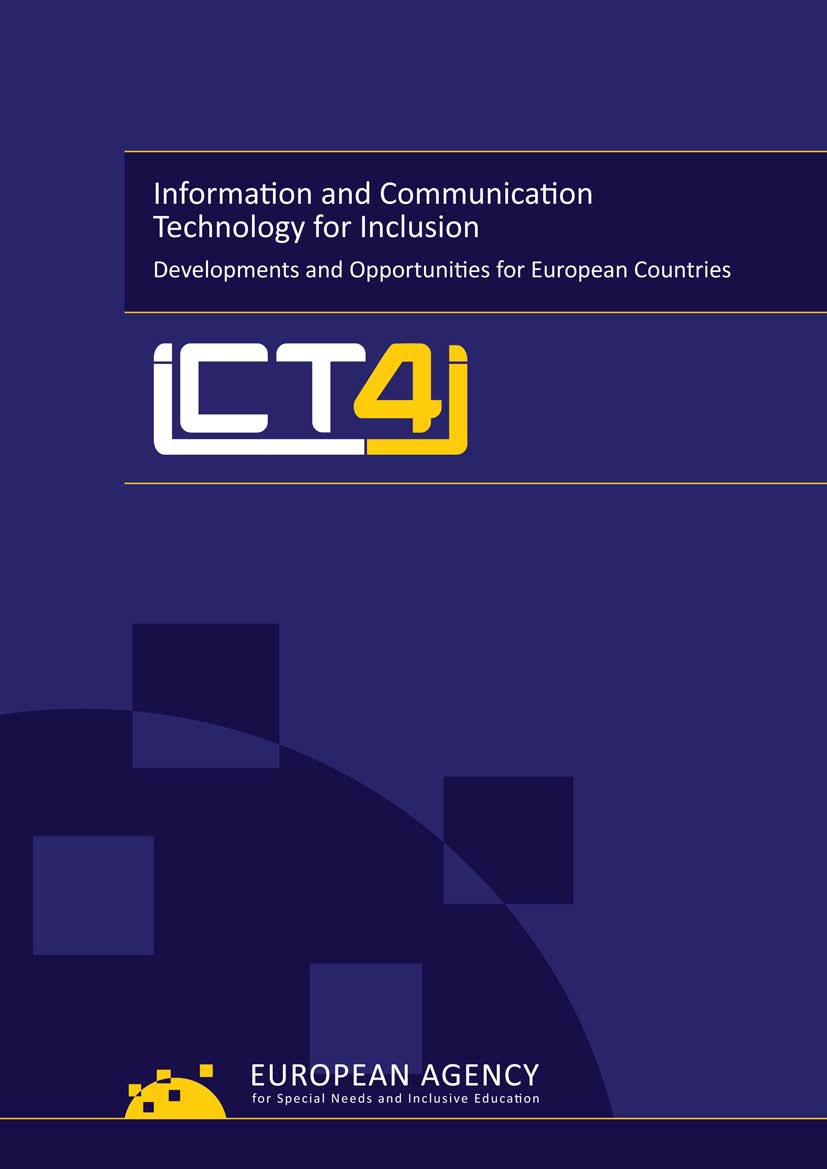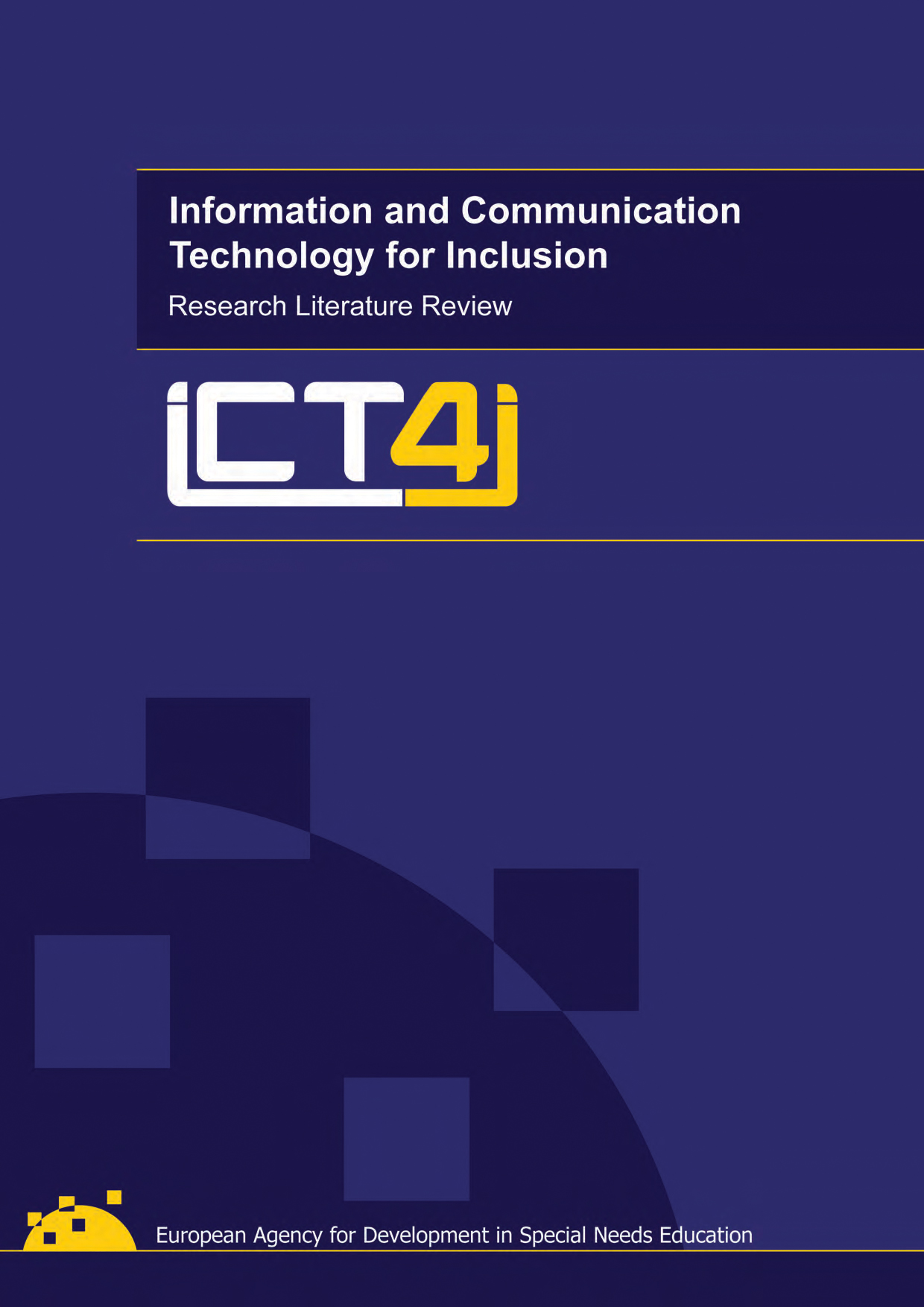Welcome to the ICT for Inclusion project area!
The Agency's Information and Communication Technology for Inclusion (ICT4I) project activities ran during 2012 and 2013. The aim was to collect information on the use of ICT for Inclusion – that is using ICT to support the learning of learners with disabilities and special educational needs in inclusive settings within compulsory education. This information:
- provides an update to the Information Communication Technology in Special Needs Education project that ran from 1999 to 2001 and involved 17 Agency member countries, and
- builds upon work conducted as part of the practice review on the use of ICTs in Education for People with Disabilities conducted in 2010/2011 jointly with the UNESCO Institute for Information Technologies in Education (IITE).
In recognition of the potential impact of ICT to education, but also social inclusion opportunities, the broader role of ICT in supporting learners with different needs in their wider societal inclusion was considered within project activities.
Project framework
The framework of the project was based upon five key propositions that can be identified within the United Nations Convention on the Rights of Persons with Disabilities (2006) in relation to the use of ICTs in education. These propositions are:
- ICT should be considered as a key tool for promoting equity in educational opportunities;
- Access to appropriate ICTs should be considered an entitlement;
- Training of educational staff in the use of general and specialist ICT must be considered a priority area;
- The promotion of ICT research and development requires a multi stakeholder approach;
- Data collection and monitoring in the use of ICT in inclusion should be considered an area requiring attention at all levels of educational provision.
These five propositions have been used as the main inter-connected themes for the overall project information collection and analysis.
Participants
The project involved the following Agency member countries: Belgium (Flemish speaking community), Cyprus, Czech Republic, Denmark, Estonia, Finland, France, Germany, Greece, Hungary, Iceland, Italy, Latvia, Lithuania, Luxembourg, Malta, Netherlands, Norway, Poland, Portugal, Slovakia, Slovenia, Sweden, Switzerland, UK (England), UK (Northern Ireland) and UK (Scotland).
Project activities have been guided by a Project Advisory Group comprised of member country representatives, as well as representatives of UNESCO Institute for Information Technologies in Education (IITE) and European Schoolnet (EUN).
Aims and objectives
The main aim of the project has been to explore how ICT can be used to support learning and teaching in inclusive settings. Within the project, an inclusive education setting is understood to be where a learner with a disability or special educational need follows education in a mainstream class with their non-disabled peers for the largest part of the school day.
To achieve this aim, a number of project objectives were identified and agreed upon with country representatives:
- the collection and analysis of key policy related information impacting upon the use of ICT in inclusive education;
- the collection and analysis of relevant research literature linked to the 5 themes of the project;
- the collection and analysis of information on participating countries’ policy and practice;
- the identification of national level, innovative examples of practice;
- the identification of relevant international resources useful in informing policy and practice for ICT in inclusive education.
The project aim and objectives have been worked towards via a number of inter-connected project activities.
Project activities and outputs
Within the project, complementary information collection has been conducted, all in line with the five project themes. A Glossary of key terms used in the project was also compiled, which is available is the Glossary section of the website. Relevant terms can be filtered based on the project name and theme.
Literature Reviews
Two literature reviews have been undertaken:
- A comprehensive review of European and international policy information, in particular recent Council of Ministers statements and resolutions in relation to ICT;
- A review of research literature relating to the use of ICT in inclusive education covering international sources (such as UNESCO and OECD work), but also European and national level information, such as abstracts of key literature from the participating countries.
Country Information Collection
Information on participating countries’ policy and practice for ICT for Inclusion has been collected in relation to the five themes for the project via a country survey. This survey collected information about:
- country policy frameworks for ICT for Inclusion;
- current practice in countries;
- examples of innovative practice;
- country research literature.
Project Synthesis Report
The project synthesis report Information and Communication Technology for Inclusion – Developments and Opportunities for European Countries presents the main findings from the ICT4I project and draws upon all sources of project information developed during project activities. The report attempts to identify the critical factors that underpin the effective use of ICT in inclusive settings for all learners, but pays specific attention to learners with disabilities and special educational needs.
The ICT4I Policy Monitoring Framework document accompanying the report is a tool for supporting the different phases of policy delivery. It is intended for policy makers and practitioners and has been drafted as non-copyright material. This is a Word file which can be adapted, modified and re-purposed as required providing a reference to the original source is given.
The report is also available in a fully accessible EPUB3 format. This is an extended version with links directly leading to specific country information collected during the project. The EPUB3 format is best viewed on tablets and mobile devices.


